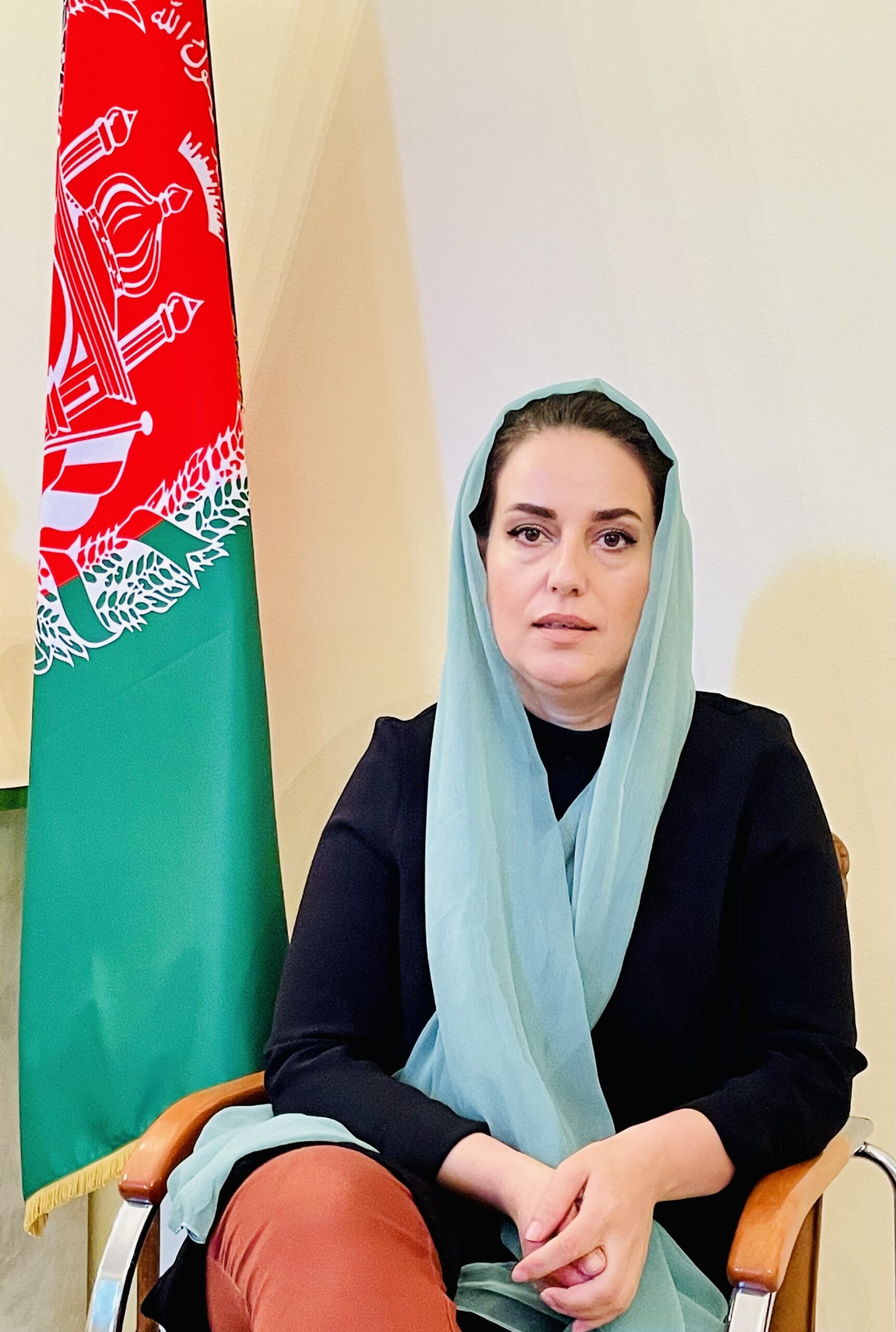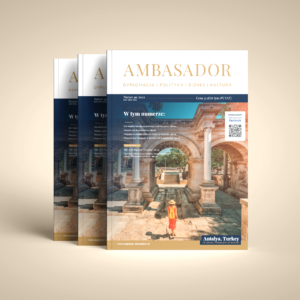In most countries of the world, women are full members of society. However, there are still countries in the world, such as Afghanistan, where women are denied these rights. I asked Nigara Mirdad Omar, Charge d’Affaires and Deputy Head of Mission at the Embassy of Afghanistan in Warsaw, to talk about the position of women in Afghanistan.
What is the daily life of women in Afghanistan today?
The situation of women is a real tragedy. Afghanistan is the only country in the not allowed to work or travel. They are not allowed to leave the house without a male companion, they are not allowed to go to a library, a park, a beauty salon…. They are not allowed to call the radio or TV from home to make a request. The only reason is that they are women – although they have not chosen their gender themselves. It’s considered gender apartheid. Despite the Taliban’s commitment to women’s rights and upholding the gains of the past 20 years in the Doha Agreement, the past two years have shown that they have failed to keep their promises. The current situation of women in Afghanistan is the case of gender apartheid, as they are being excluded from society because of their gender.
What rights did women have in Afghanistan when the Taliban took over in August 2021?
Throughout history, women in Afghanistan have fought for their rights. In 1919, women in Afghanistan won the right to vote, and the 1964 Constitution guaranteed equal rights for women and men. The 2002 Constitution of the Republic continues to uphold the principle of equality. By 2020, as many as 3.5 million girls were enrolled in education, 27 percent of members of parliament were women, there were four female cabinet ministers, four female ambassadors, and 22 percent of the workforce were women. In addition, 11 percent of diplomats were women. The achievements of the past twenty years are remarkable, with numerous examples highlighting the progress made by August 20121.
What bans were introduced for women by the Taliban decree o 2022?
Since 2021, the leader of the Taliban, whose face remains invisible, has issued more than 55 decrees regarding women. These decrees have imposed severe restrictions on women in Afghan society, including banning them from attending school, university, travelling, working, walking in public parks, using public toilets, and enforcing mandatory hijab. The most recent decree prohibits women from working in the offices of the United Nations and international organizations. Despite recommendations from Afghan women and the international community, the Taliban have disregarded them and continue to impose more restrictions on women.
What are the costs of excluding women from the labour market?
The 40-year war in Afghanistan has claimed many lives, with women bearing the brunt of the suffering. Many families have lost their male members in the conflicts, leaving women as the primary breadwinners. Over the past two decades, women have been actively involved in various sectors, including government, private businesses, civil society, and parliament.
However, with the return of the Taliban, the economy of many families has been severely affected. According to a United Nations report, 28 million people in Afghanistan are food insecure. There have been disturbing reports of child trafficking, mass migration, child labour, and suicides due to poverty. Afghanistan has been without a legitimate government and rule of law for more than two years, leading to dire economic conditions and isolation from the international community.
The exclusion of women from the labour market can have significant costs, both for the individual women affected and for society as a whole. The inability of women to participate in the labour force can lead to economic losses, reduced productivity, and hindered social and economic development. Women’s exclusion from the labour market also perpetuates gender inequality and limits women’s opportunities to achieve financial independence and contribute to their communities.
Why do the Taliban fight against women’s rights in Afghanistan?
The Taliban have a deep-seated hostility towards women. According to their ideology, women are considered to be a negative influence that promotes sin. The Taliban believe that women, through their productivity and role in building lives and families, can create links within society that can lead their soldiers to question their destructive and terrorizing orders. As a result, women are banned from education, work, and social interaction in the community. Taliban indoctrination from an early age instils hatred of women to the point that honour killings of women are considered permissible. This indoctrination serves to maintain control over their soldiers and perpetuate their extremist beliefs.
The Taliban’s opposition to women’s rights in Afghanistan is rooted in their interpretation of Islamic law and their strict adherence to traditional gender roles. The Taliban’s ideology promotes a patriarchal society in which women are expected to follow strict rules and restrictions in all aspects of their lives. This includes restrictions on education, employment, mobility, and social interaction.
Lorem ipsum dolor sit amet, consectetur adipiscing elit, sed do eiusmod tempor incididunt ut labore et dolore magna aliqua. Tellus in metus vulputate eu scelerisque felis imperdiet proin. Non blandit massa enim nec dui nunc mattis enim. Vestibulum rhoncus est pellentesque elit ullamcorper dignissim. Nulla porttitor massa id neque aliquam vestibulum. Odio euismod lacinia at quis risus sed vulputate odio. Laoreet sit amet cursus sit amet dictum. Elementum curabitur vitae nunc sed velit dignissim. Pulvinar elementum integer enim neque volutpat ac tincidunt vitae. Elementum integer enim neque volutpat ac tincidunt vitae semper quis. Leo vel orci porta non.



Sledź nas na: